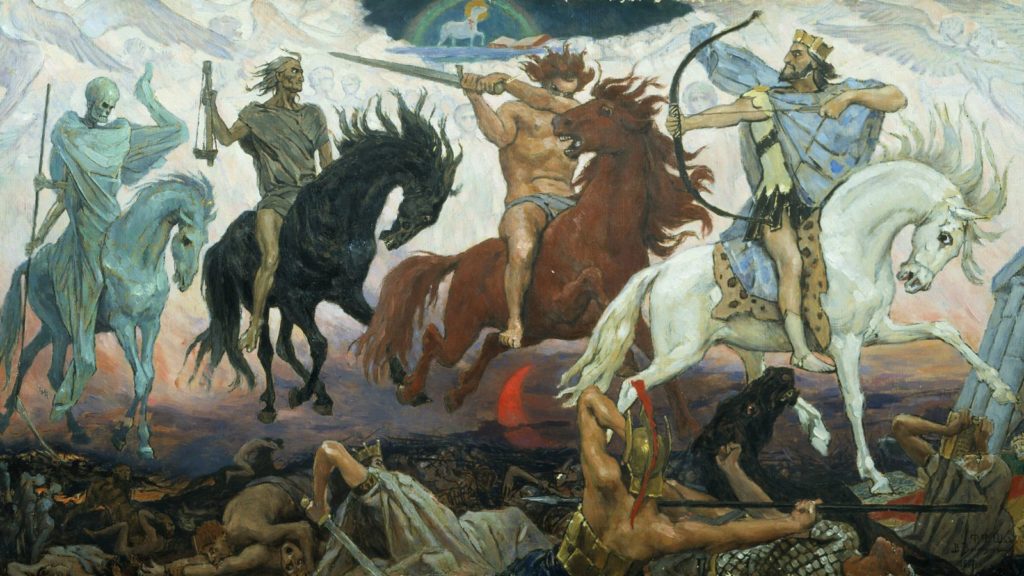In our Book of Mormon, there is a story of this people that built this great tower so that the people could take turns saying the same prayer:
"... Holy God, we believe that thou hast separated us from our brethren; and we do not believe in the tradition of our brethren, which was handed down to them by the childishness of their fathers; but we believe that thou hast elected us to be thy holy children; ... and thou hast elected us that we shall be saved, whilst all around us are elected to be cast by thy wrath down to hell; for the which holiness, O God, we thank thee; and we also thank thee that thou hast elected us, that we may not be led away after the foolish traditions of our brethren ... And again we thank thee, O God, that we are a chosen and a holy people. Amen." (Alma 31:14-18)
And only the rich were allowed to climb the tower and say this prayer -- that is, the poor were cast out.
This is the epitome of what I would called self-righteousness. It is when someone is so "right" that they believe they are better than others, and others are "wrong." Some may read this prayer and say, "But that's stupid. That's way too obvious. No one would say that prayer in real life." But then again, consider these two real-life situations...
#1) At BYU, I once had a religion teacher (for an honors course), who so much desired a sacred environment in his classroom that we could never satisfy him. He always spoke so solemnly, and with conviction. But for some reason -- he didn't seem to like me at all -- maybe my unending smile. (There's actually more to the story, but I'm trying to keep it brief.) He would often stop class to berate some student and accuse them of disrupting the Spirit. Once, he called out the entire class: "This is an honors class, so why can't you all act like honor students? You ought to be ashamed of yourselves." Then we would all wonder what he was talking about.
I hated attending that class, and only showed up because attendance was required to pass. Unlike other religion classes where teachers were able to naturally invite the Spirit, I don't think I ever felt the Spirit in this class -- as if this teacher were trying too hard to create an unnaturally spiritual environment that would rival all other classes at the university.
#2) A friend reports to me that a retired General Authority left Salt Lake City and returned to his home ward, only to apply undue influence on spiritual matters, taking advantage of his elevated station to pass his own Pharisaical rules (in other words, rules that go beyond canonical doctrine), and in so doing managed to push members of the Church away.
Both of these cases exhibit a mixture of self-righteousness and a smidge of unrighteous dominion (unfair use of one's power and influence). Each of these people thought they were "right" so much that they enforced their version of righteousness on others.
And perhaps these are more extreme examples, but I've noticed that practically all of us can fall into the self-righteousness trap. I noticed a LOT of self-righteousness exhibiting itself on both sides of the aisle in recent political discussions, as I bemoaned in my recent post: Where Have All The Christians Gone?
And I've caught myself doing it in recent months with the coronavirus outbreak. As a mathematician, I understand all the math and the patterns. I know stuff, and it's very easy for me to see when other people are wrong -- and what ends up causing the virus to spread more. It's very clear for me to see all this. But as I try to help other people to understand and see what I see, very seldom do I ever convince anyone. At the same time, I see other people similar to me explaining it, and they seem to have better success getting people to put on their masks and practice social distancing. And I'm all: what the heck are they doing differently?
I think it comes down to attitude. As soon as you think you're better than someone else -- you've already lost the cause. And this is very difficult to overcome. I really am good at math. I know how good I am. I know how terrible others are at math. So, it's very easy to think, "I'm smarter. I know better, and people should listen to me." But I haven't figured out yet how to overcome this fully, though, I continue to get better as I get older. I'm always going to be better at math (nothing I can do about that), but that doesn't make me a superior person.
I intentionally spelled all that out so we can parallel it with this conundrum: But doesn't God want us to be righteous? Doesn't he want us to continually be better people (be ye therefore perfect)? But we're not supposed to believe that we're better than other people? How can we get better and at the same time not feel superior?
I think I know the simple answer ... and maybe this is it ... God doesn't want us to be better than other people. He wants us to be better than ourselves. In other words, we shouldn't be comparing ourselves to other people. Our path in life is our own personal journey, and our only enemy is ourself. Our only benchmark should be where we are now and where we want to be.
I'll continue working on it. And perhaps you can look for signs of it happening to yourself. Do you ever think you're better than others? Smarter than others? Are you thankful to God that he gave you blessings that other people don't have? Or do you think that you're going to enter into heaven while your friends who disagree with you are not?
If so, you may want to think again. Try to remove that self-righteousness and try again.



